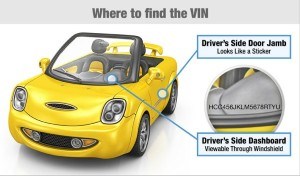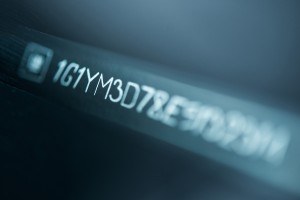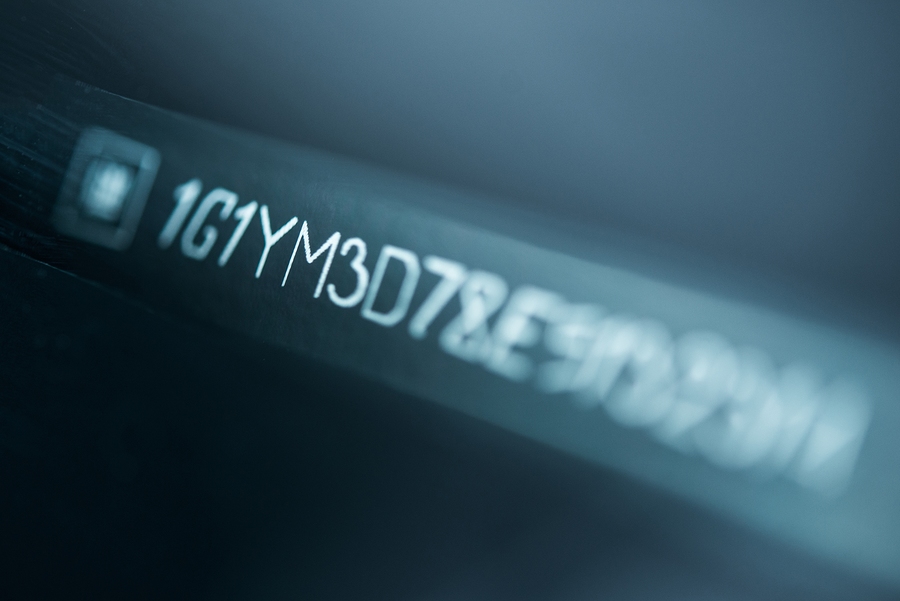Since 2001, the incidence of vehicle cloning – when a vehicle identification number (VIN) on a legally owned vehicle is transferred to a stolen vehicle – has risen at a cost of more than $36 million in fraudulent vehicle transactions, according to the National Crime Prevention Council.
According to the Washington State Department of Licensing, VIN cloning is a type of title fraud that can occur with vehicles and boats. Title fraud occurs when the title, the Certificate of Ownership that shows who owns the vehicle, doesn’t accurately report important information about the history of a vehicle or boat.
Each car has a unique VIN containing 17 numbers stamped on its metal frame that offers specific details about cars built from 1981 to present. The information it provides includes the make, model, where and when it was built as well as technical information about the car.
The first three numbers are known as the World Manufacturer Identifier, according to Honda’s website. The five digits that follow, are known as the Vehicle Description Section, providing information on the engine, body style and model, the manufacturer explained. The ninth number is a “check digit”, according to the Esurance website, which noted that it “verifies the legitimacy of your VIN to confirm that it’s not the handiwork of a fraudulent dealer or vandal.” The tenth number and/or letter indicate specific model years. The manufacturer’s plant code is the eleventh digit and what remains is a unique serial number.
Certain states, like Wyoming, offer state assigned VINs for homemade or rebuilt vehicles.

According to Progressive’s website, the VIN may be located on the dashboard, below the driver’s side windshield, on the driver’s side doorpost near the door latch or on the driver’s side door below the latch mechanism. The insurer said that the VIN may also be on the insurance declarations page of the auto policy, an insurance identification card and on the vehicle registration and title.
Progressive offers a key to decode the VIN on its website: https://www.progressive.com/vehicle-resources/vin-number-code/

In a new consumer release issued by GEICO, the insurer warned of the rising crime and noted that the VIN can be fraudulently changed, either on the vehicle itself or on paper documents to hide the fact that the car has been stolen.
VIN theft allows the cloned vehicle to be sold to an unsuspecting party. The consequence, according to NCPC, is that the vehicle can be confiscated by authorities and the victim who purchased the vehicle is left with paying off loans and other fees associated with the vehicle.
The National Insurance Crime Bureau and CarFax offer free services to the public to determine if a vehicle has been reported stolen and not yet recovered. In addition, NICB’s service also allows searches on vehicles reported as salvage by a NICB member insurance company. A VIN is all that is needed to perform a search. The NICB service allows a maximum of five searches in a 24-hour period per IP address.
Consumers can also access information on VINs by using the federal government’s National Motor Vehicle Title Information System (NMVTIS) http://www.vehiclehistory.gov/. The information, like access to title documents, is offered for a fee through vendors listed on the site.
GEICO offered recommendations to consumers on how to avoid becoming a victim of VIN fraud. These include:
- Selecting a reputable car dealer.
- Having a certified mechanic inspect the vehicle prior to purchasing.
- Inspecting all title and ownership documents by conducting a title search to confirm ownership. The seller’s information should match the information listed on the title. In addition, confirm the VIN found on the car is consistent with all documents and records.
- Get a detailed used car history report. Verify car history, past ownership, accident history, liens, maintenance and flood damage. Car history reports can also be obtained from NMVTIS or via online sources such as carfax.com.
- Perform a VIN check.
Was this article valuable?
Here are more articles you may enjoy.


 Tesla Sued Over Crash That Trapped, Killed Massachusetts Driver
Tesla Sued Over Crash That Trapped, Killed Massachusetts Driver  LA County Told to Pause $4B in Abuse Payouts as DA Probes Fraud Claims
LA County Told to Pause $4B in Abuse Payouts as DA Probes Fraud Claims  Credit Suisse Nazi Probe Reveals Fresh SS Ties, Senator Says
Credit Suisse Nazi Probe Reveals Fresh SS Ties, Senator Says  One out of 10 Cars Sold in Europe Is Now Made by a Chinese Brand
One out of 10 Cars Sold in Europe Is Now Made by a Chinese Brand 